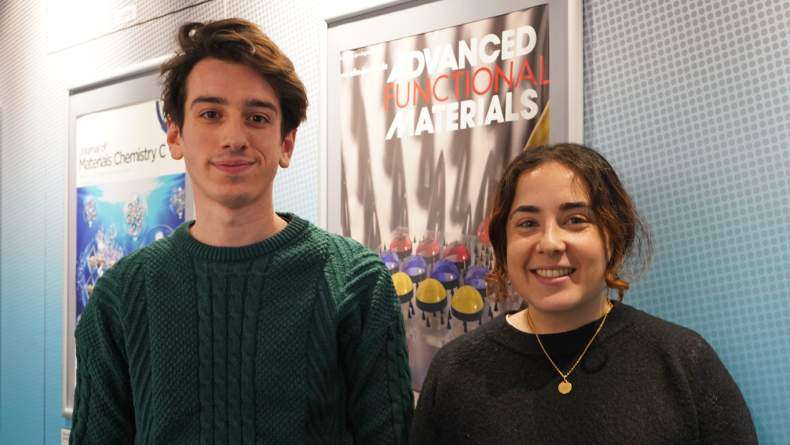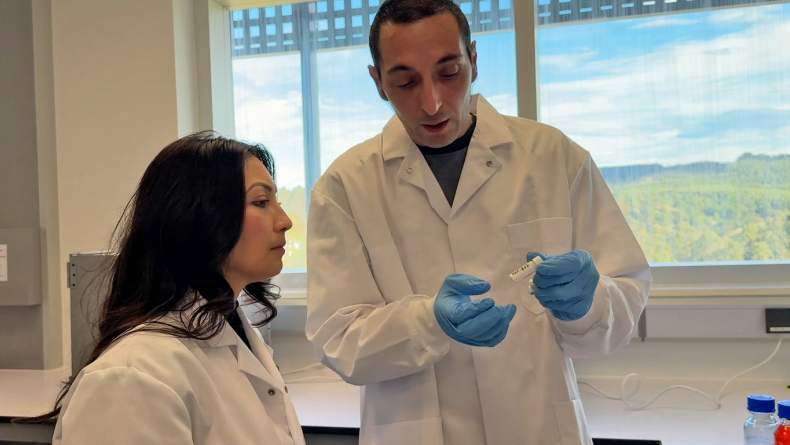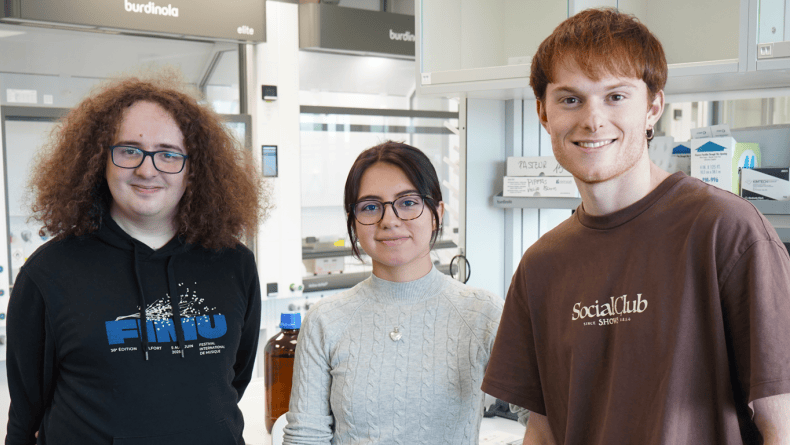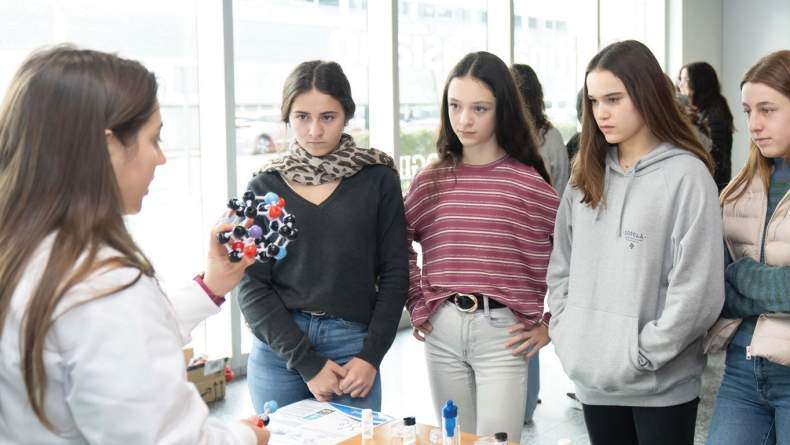Neutron scattering for research of materials and transient processes in lithium power sources by Mikhail V. Avdeev
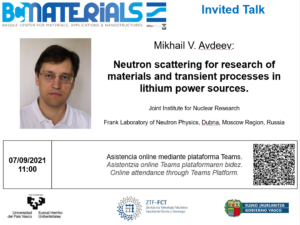
We are pleased to announce the invited talk given by Mikhail V. Avdeev, Professor at Frank Laboratory of Neutron Physics, Joint Institute for Nuclear Research, Dubna, Moscow region, Russia about “Neutron scattering for research of materials and transient processes in lithium power sources”.
The current rapid development of electric transport, robotics, as well as the miniaturization and increasing functionality of portable electronic devices call for the creation of more advanced electrochemical energy storage devices. At present, lithium-ion batteries exhibit the highest specific energy storage capacity, the basis of which is the ability of electrode materials to insert (intercalate) and extract (deintercalate) lithium ions during battery charging/discharging, respectively. Further ways to significantly increase the specific capacity of electrochemical sources today are associated with lithium energy storage devices of ‘non-intercalation’ type, such as lithium-ion sources with metal anodes or lithium-oxygen cells with carbon-based cathodes. In turn, this determines the urgent need for the development of experimental approaches that would make it possible to explore the structure of electrodes and electrolytes in bulk and at interfaces including those in operating cells. Scattering of thermal (energy <0.5 eV) neutrons has proven to be a promising technique for this purpose, which allows tracking the structural evolution of the components of electrochemical cells.
The report provides a review of the recent advances in neutron scattering methods for research related to the development of lithium power sources of different types. It summarizes the experimental studies and diagnostics of electrode materials and electrochemical interfaces using neutron diffraction, reflectometry and small-angle scattering over the past ten years. The results obtained establish relationships between the microstructure of the components and macroscopic characteristics of electrochemical cells in various conditions.
The talk will be on September 7th at 11:00.
The event is free and open for everybody, it will be online via TEAMS with the following link:
Teams Link
Do not miss it!


Related news
Sara Martín eta Stefano Lunghi, BCMaterialseko ikertzaile berriak
BCMaterialsetik ongietorria egiten diegu gure ikertzaileak osatzen dituzten bi pertsona berriri: Sara Martín Iglesias, Material Aktibo eta Adimendunen arloko doktoratu ondoko ikertzaileari, eta baita…Urak deskontaminatzeko eta balorizatzeko nanomaterialak
BCMaterials-eko zientifikoek azken belaunaldiko nanomaterialak garatzen ari dira, jatorri naturaleko mintz polimerikoekin konbinatuta, urak deskontaminatzeko eta errebalorizatzeko. Material berri…Hiru ikertzaile berriak BCMaterials-en
Urte berriak hiru zientzialari berri ekarri ditu BCMaterialsera. Karen Cano eta Mikel Russo doktoratu aurreko ikertzaileak eta Jules Marcone doktoratu ondoko ikertzailea dira. Hainbat ibilbide…BCMaterials jarduerak Emakumeak Zientzian ekimenean
Aurten, Emakumeak Zientzian ekimenaren sortzearen 10. urteurrena betetzen da. Zientziaren Emakume eta Neskatoaren Astean zehar zientzia-dibulgazioko jarduerak antolatzen dituzten 30 euskal erakunde…
